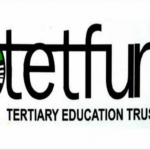When the Tertiary Education Trust Fund (TETFund) introduced Career Service Centers in the 2024 disbursement cycle, it was meant to complement other programs in the nation’s tertiary education system. Specifically, the Centers were established to provide information for students on trends in the job market, opportunities, and requisite skills as well as linkages with the employment industries including the alumni of the institutions.
These factors above were informed by the need to attend to emerging needs of students and find a way to provide the needed learning environment for the students in a dynamic global context. The challenging global environment even makes it imperative for the agency to implement initiatives that will strengthen and reposition beneficiary institutions for global competitiveness.
The Executive Secretary of TETFund, Arc. Sonny Echono at a recent workshop on “Emerging Areas of Students Needs in Beneficiary Institutions” said the Fund considers the establishment of these centers necessary for the development of student’s careers and their employability, which is the raison d’etre for establishment of tertiary educational institutions.
According to him, Career Services Centers have helped students in advanced nations to make informed decisions regarding their career paths, hence the need to replicate these centers in Nigeria to provide counselling, guidance, and support to all students as well as give them tools for self-assessment to further support them to identify their interests, strengths, weaknesses and prospects.
“Career centers help to organize and facilitate education programs, workshops, seminars, and other similar programs to equip students with relevant employability skills to assist them search for jobs. They provide transition resources by supporting resume building, application processes and interview preparation”.
He maintained that it is in consideration of the significant role that career centers play in the career development of students of tertiary education that the Fund took the decision to incorporate it in the 2024 disbursement guidelines.
Another relevant area of concern is the teaching practice intervention. It is in recognition of the significance of the student-teachers and the faculties of Education which is to make the teaching profession more attractive that the Fund is currently working on how to reposition the teaching profession and the teaching practice intervention which has been consistently made available to supervisors and the sustainability of the intervention.
There is no denying the fact that teaching practice provides experiences to supervisors and student teachers in-real time in the teaching environment as well as an opportunity for supervisors and student-teachers to practice the art of teaching before they become real teachers. This helps to perfect their ability and potentials in pedagogy.
It also enables supervisors and student-teachers to discover their weaknesses and strengths in the classroom and provides the opportunity to hone and improve their abilities. Again, it enables supervisors and student-teachers to develop positive attitude towards the teaching profession among several other important reasons.
To further buttress the significance of teaching practice in our tertiary education system, the Tinubu-led administration has issued a presidential directive on the support of teaching practice and the recommendations of the National Salaries, Incomes and Wages Commission, regarding the teaching practice allowance, which now includes Faculties of Education in our Universities.
According to the TETFund Boss, to give effect to the presidential directive may require collective brainstorming from relevant stakeholders that may lead to a reworking of the teaching practice funding template currently in use. This is premised on the fact that the methodology employed in the computation of the allowance by the Fund and that of the Salaries, Incomes and Wages Commission appear to be different, hence the need for harmonization to achieve shared acceptance.
On other equally important areas of intervention like ICT programs and the hostel development drive using the Public Private Partnership model, Echono said since the world is currently driven by information and communications technology, any education system that is not ICT-driven or compliant may not compete favorably in the global environment.
To him, this is the major reason why the Fund has continued to pay special attention to its information and communications technology roadmap that led to the development of the Tertiary Education Research, Application and Services platform (TERAS).
TERAS is a centralized hub that fosters collaboration, efficiency and innovation through the provision of a wide range of services to students and researchers. The platform was launched by the Honorable Minister of Education and have access to libraries, learning resources, data bases and Eagle Scan for plagiarism checks amongst several other services, that will transform our institutions into modern digitalized centers of learning.
To further elaborate on the need to promote ICT-driven programs in tertiary institutions and the inclusion of the robust student population in the scheme so as to gain insight on the significance of ICT in today’s changing world, the Fund also recently contacted an expert to deliver a paper with the theme: “Emerging Students Needs in Our Contemporary Learning Environment using ICT’’.
Indeed, TETFund under the leadership of Echono has continued to provide interventions and other laudable initiatives that seek to promote the welfare and wellbeing of students in their learning environments. This is because of his administration’s understanding that the conditions under which a student studies significantly determines his output and performance which is why the Fund is doing everything possible to look into some of the age-old problems facing many institutions in the face of scarce resources.
Tersoo, a critique and Public Affairs analyst, wrote from Abuja.

 Join Daily Trust WhatsApp Community For Quick Access To News and Happenings Around You.
Join Daily Trust WhatsApp Community For Quick Access To News and Happenings Around You.


